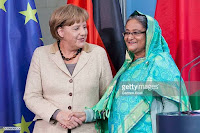Economic ‘headwinds’ lead IEA to cut global oil demand forecast
Global Energy Organization actually anticipates a record high this year, yet for development to be lower than thought
Worldwide oil request will arrive at an untouched high this year, however "constant macroeconomic headwinds" mean it won't develop as fast as had recently been normal, the Global Energy Organization (IEA) has said.
The Paris-based worldwide energy guard dog said that request was supposed to ascend by 2.2m barrels a day in 2023, prompting a normal of 102.1m barrels a day.
Yet, that forecast is 220,000 barrels a day lower than its past assumptions - whenever the office first has brought down its estimate for development this year.
China, supported by flooding petrochemical use, will represent 70% of worldwide additions after it returned its economy post-pandemic, the IEA's month to month oil market report said.
Nonetheless, the country's recuperation has having a hard time thus far "neglected to reach out past movement and administrations, with its financial recuperation losing steam after the skip prior in the year", the report added.
The IEA said that utilization in created nations and more extensive Europe stays iron deficient, and imports to African nations had declined because of high homegrown fuel costs after endowments were eliminated.
"Persevering macroeconomic headwinds, obvious in a developing assembling droop, have driven us to change our 2023 development gauge lower interestingly this year", the report said.
It added: "World oil request is going under strain from the difficult financial climate, not least due to the sensational fixing of money related arrangement in many high level and non-industrial nations throughout the course of recent months."
The IEA said that worldwide oil inventories looked "somewhat agreeable" and had recuperated to their most elevated level since September 2021.
China had its biggest month to month expansion in unrefined stocks in a year, fuelled by a huge ascent in oil imports, which included vigorously limited barrels from Russian and Iran.
The IEA said that oil request development was probably going to split one year from now to 1.1m barrels a day.
Last month, the IEA said that the declining worldwide economy and push for environmentally friendly power energy implied that the top for request in oil was "in sight" and could precede the decade's end.
The IEA's chief, Fatih Birol, said: "The shift to a tidy energy economy is getting pace, with a top in worldwide oil interest in sight before the finish of this long period as electric vehicles, energy effectiveness and different innovations advance."








